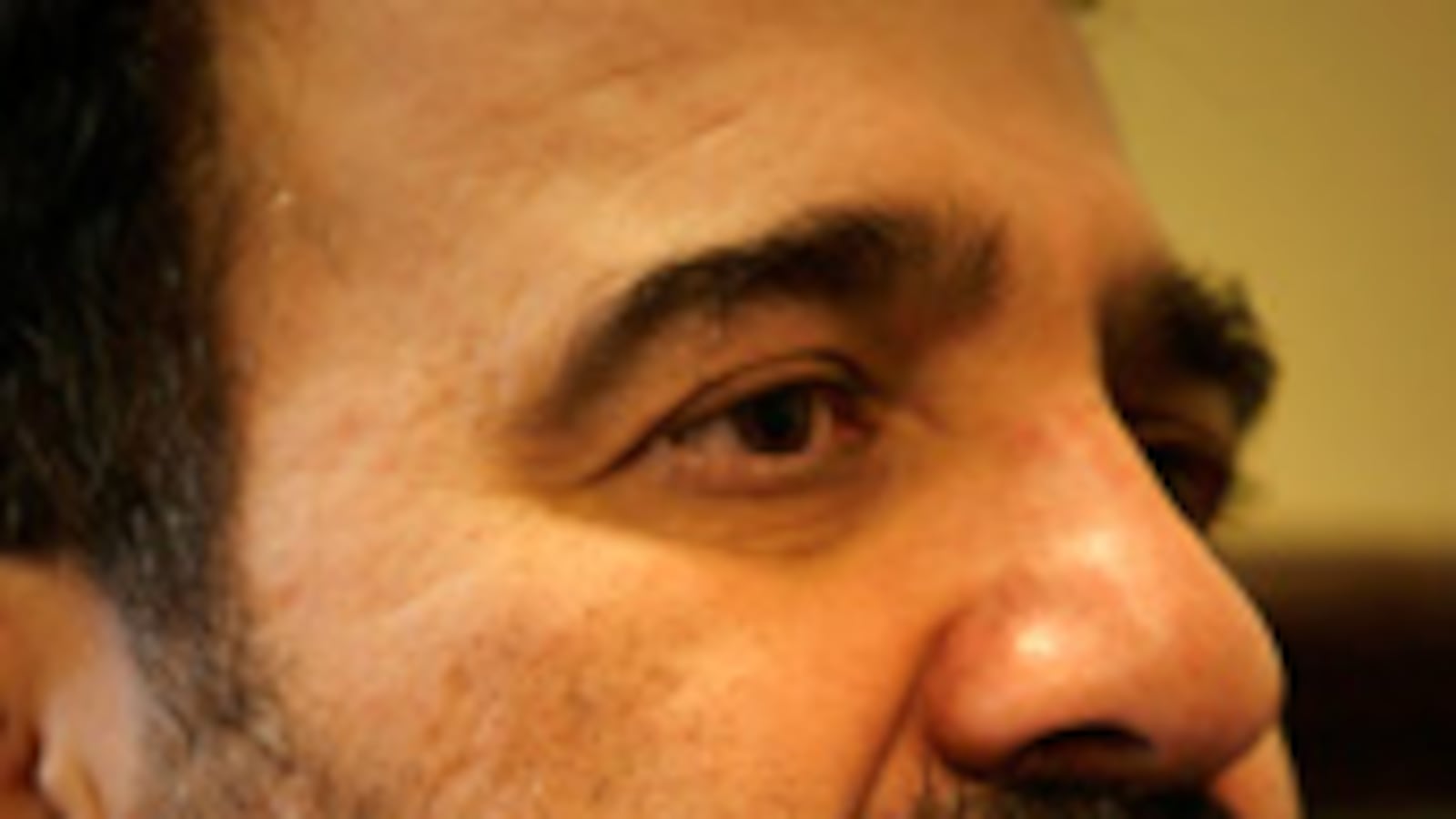
Ahmed Wali Karzai has gotten a bum rap lately. He’s been called the King of Kandahar, a narcotics trafficker, a CIA informant, and a warlord. His notoriety has earned him that special designation given to America’s favorite friends and enemies—the three-letter acronym. In U.S. military and diplomatic circles, he is simply known as AWK.
But the youngest brother of Afghan President Hamid Karzai shouldn’t be dismissed with shorthand. As the U.S. navigates critical alliances in Afghanistan, he could prove a helpful ally—something American officials should keep in mind as his brother heads to the White House this week for an official visit.
“I am hoping for a new beginning and I am hoping we can start working together. Their success is my success and their failure is my failure. I am willing to play my part stabilizing Afghanistan and Kandahar.”
“I am not a warlord,” Ahmed Wali Karzai told me when I spoke to him recently about the allegations against him. “I’m like the Nancy Pelosi of Kandahar… a local politician and negotiator. I am not the things some people accuse me of. This is an Afghan politics problem. It has nothing to do with the international community. It is between us.”
After 10 years in Chicago, Karzai returned to Afghanistan in 1992 to work with his father and brother in Quetta and Kandahar, and six years later, helped them organize Pashtun opposition to the Taliban. Since 2001, he has lived in Kandahar, where he is the elected head of the Kandahar Provincial Council, effectively controlling the provincial and broader southern economy through his extensive business interests.
It is these business interests that have drawn public scrutiny. For an article in The New York Times, officials in the previous administration cited numerous reports linking Ahmed Wali Karzai to the drug trade.
And last year, there were reports of vote-rigging in connection with the presidential election.
But Ahmed Wali Karzai strongly refutes allegations of corruption and narcotrafficking, labeling it “misinformation.”
“It is not an easy thing to be the president’s brother,” he said, “especially when over 40 countries are here and people are saying bad things about people.”
Still, Karzai knows the media reports have damaged his standing with the international community, and he said he welcomed a new partnership that was recently forged with the U.S. military. American military officials have met with the younger Karzai in recent weeks to see for themselves what kind of partner he might be for the United States.
“The military has led the way getting me into the process,” he said. “I am willing to continue the cooperation and forget about the past. I am hoping for a new beginning and I am hoping we can start working together. Their success is my success and their failure is my failure. I am willing to play my part stabilizing Afghanistan and Kandahar.”
Success in Kandahar, the spiritual home of the Taliban, is critical to break the insurgency, and Karzai believes he can play a crucial role there, by helping reconciliation with tribes and the Taliban.
It would be a break with the kind of terminal naiveté that has permeated the Obama administration’s Afghanistan policy. The White House seems so far to have been searching for a nonexistent Western liberal democrat with a squeaky-clean résumé who can channel and project power, forgetting the more sordid reality that is Afghanistan politics.
Thankfully, General Stanley McChrystal appears to have brought a more pragmatic approach to the table, reaching out to someone with a controversial past who may prove to be a necessary partner in accomplishing U.S. goals in the country.
As the administration decides who is an acceptable partner among the sundry cast of warlords, insurgents, and criminals in the country, officials may have to put their reservations about Ahmed Wali Karzai aside. At this point, there are few other viable options in Kandahar.
Karzai said he believes that relationship between the Afghan government and the Obama administration is “moving in the right direction” and that he won’t be a major point of contention during the meetings in Washington. “I think the debate is over,” he said, adding praise for the U.S. “I appreciate the Americans giving their blood and their money and time for Afghans. I respect that.”
In terms of how he might be useful to Americans in Afghanistan, Karzai said he occupies a unique position to help: He can negotiate with tribes in Kandahar and Helmand, and can also implement any changes in policy when it comes to talking with the Taliban.
“The tribes trust me and I am willing to help this upcoming military operation, which everyone is supporting,” he said. The people of Kandahar “want development and more reconstruction activities. We must listen to them and we must work with them. I am sure that I can bridge between the people and the governor and the coalition. I want to play this positive role.”
In terms of negotiating with the Taliban, Karzai declined to comment on specific plans or negotiations, saying only: “I personally believe there should be an Afghan policy dealing with the Taliban.”
Elise Jordan is a New York-based writer who frequently travels to Afghanistan. She served as a director for communications in the National Security Council from 2008-09 and was a speechwriter for Secretary of State Condoleezza Rice.





